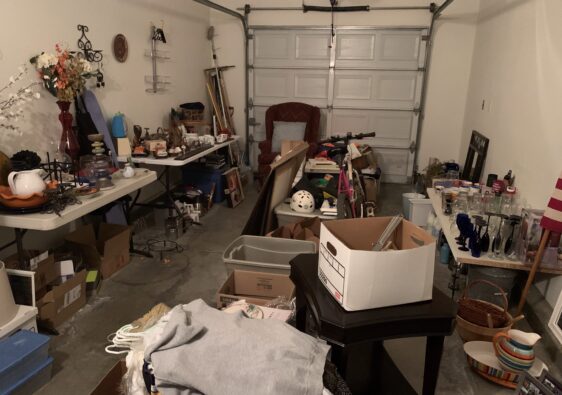When we think about moving, we brace ourselves for the obvious challenges — packing, unpacking, and saying goodbye to familiar spaces. But what caught me off guard after our Project Downsize move wasn’t the physical or emotional exhaustion. It was something else entirely: mental fatigue.
You don’t realize how much of your day-to-day runs on autopilot until you make a big change.
There’s a unique kind of tiredness that comes from being in a new environment. Suddenly, every little thing — from finding the nearest grocery store to remembering which drawer the silverware is in — requires thought. Things that once took no effort now take focus, decision-making, and brainpower.
It’s like working a muscle that hasn’t been used in a while. I knew moving would be exhausting, but I didn’t expect the fatigue that followed for weeks after the move. My brain felt sore — not in a bad way, but in that “good workout” kind of way that reminds you growth is happening.
You don’t grow when you’re comfortable.
If you’re in the midst of a move — or even just stepping out of your comfort zone in some small way — remember to be gentle with yourself.
Think of moving fatigue as a sign that your brain is learning, adapting, and expanding. Each time you navigate a new route, meet a new neighbor, or figure out how to make a new space feel like home, you’re exercising resilience and keeping your mind sharp. And who couldn’t use a little more of that?!
How to Ease Moving Fatigue (and Find Your New Rhythm)
If you’re feeling that “mental soreness” that comes after a big move, you’re not alone. Here are a few ways to make the transition easier — and maybe even enjoy the process:
- Give Yourself Permission to Slow Down.
You don’t have to have every picture hung and every closet organized right away. Let your new space — and your new routine — unfold at a natural pace. - Reestablish Routines Gradually.
Familiar habits (like your morning coffee ritual or evening walk) help your brain feel grounded again. Bring them back one at a time. - Get Out and Explore.
Take small, no-pressure adventures. Walk a new route, find the nearest market, or stop by a community event. Exploration helps your brain create new “mental maps.” - Stay Social — Even When You’re Tired.
It’s tempting to hunker down, but connection restores energy. Say hello to a neighbor or invite a friend for coffee — little moments of social connection go a long way. - Tackle One Zone at a Time.
Instead of trying to settle everything at once, focus on one area each week. Each small win builds momentum and confidence. - Celebrate the Small Milestones.
Found your favorite grocery store? Figured out your morning walking route? Celebrate it — these small moments mean you’re adapting beautifully. - Nourish Your Body.
Fatigue hits harder when you’re dehydrated or skipping meals. Keep easy, nourishing snacks handy and drink plenty of water. - Move Your Body Gently.
A walk, stretch, or yoga session releases tension and clears the mental fog that comes with constant decision-making. - Create Comfort Corners.
Even if most of the house is still in boxes, set up one cozy spot where you can rest — your favorite chair, a candle, a good book. - Remember: Growth Feels Uncomfortable.
It’s okay to feel off balance. This is your brain — and your life — expanding. You’re building new rhythms, new connections, and a new sense of home.
👉 Thinking about downsizing or making a move to Ocean Hills Country Club? Join our Insider Newsletter for monthly stories, tips, and inspiration from others who’ve made the leap.




